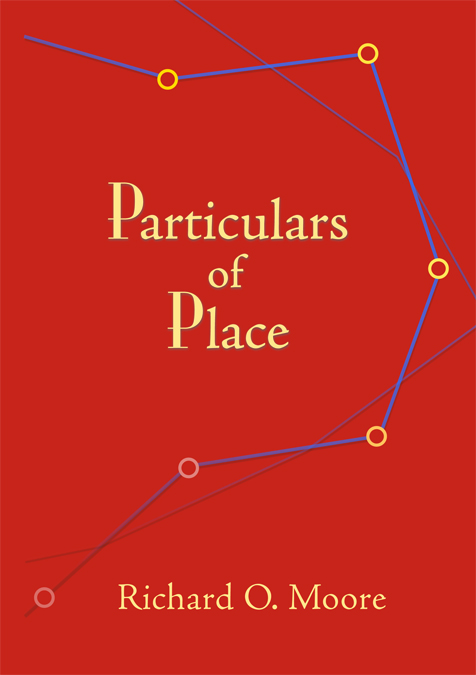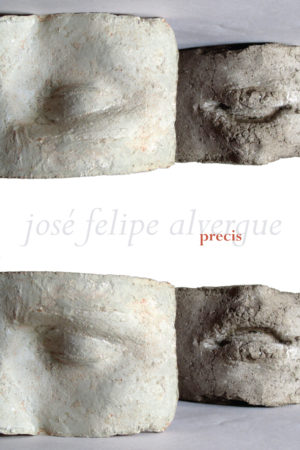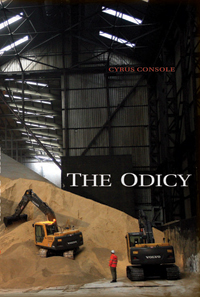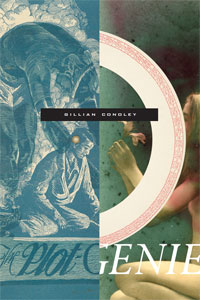Description
Edited by Garrett Caples, Paul Ebenkamp, and Brenda Hillman
With an introduction by Cedar Sigo
The last living member of the original circle of Anarcho-pacifist poets around Kenneth Rexroth, at the birth of the San Francisco Renaissance in the 1940s, Richard O. Moore published his acclaimed first book of poems, Writing the Silences (California, 2010), at age 90. Now Omnidawn presents his second book, Particulars of Place, largely comprised of work written over the ensuing five years. The title poem is an ambitious meditation on life in the twilight of American Empire, posing the question of how to live in an age of endless warfare. Other highlights include “Check Point,” an elegiac indictment of aerial bombing on behalf of its historical victims; a section of prose poems from his experimental sequence “d e l e t e”; “Apart from It,” an autobiographical tour de force ranging from his depression era orphanhood to “the climate change of old age”; and excerpts from Outcry, a poignant sonnet sequence on the poet’s recently received diagnosis of legal blindness. Throughout, his commitment to social justice mingles with his interest in Wittgenstein’s linguistic philosophy, resulting in a poetic amalgam unique to Moore himself. Reflecting a lifetime of devotion to the art of poetry, Particulars of Place confirms Moore’s paradoxical position as a newly emerging old master.
Richard O. Moore’s poetry holds firm, as Williams put it, while searching out all corners of the mind with intimacy and conviction, and without adornment or brokered sentiment. His “Blindness Sonnets” alone are as moving and searing in their even-handed concision as any sense-driven poems I’ve read in recent years, and the entirety of Particulars of Place across its formal change-ups, long perspectives, and wry handling of tonality makes for an emphatically real, and nonetheless nourishing, world. No other poetry I know of sings from such ground.
Anselm Berrigan, author of Notes From Irrelevance
There is, after all, an extremity at which the fine distinctions make Heavens of crisis and human oracles of plain-speaking. It is the particular genius of Richard O. Moore, even at extremes, to distinguish between light and dark, substance and subterfuge. Here are phrases meant to be incised: Delphic, daring, and yet deeply calm.
Donald Revell, author of Tantivy
The Particulars of Place are immediate from Troy to Fallujah, are present from “the farthest outposts of the spoken word” to the “local supermercado.” But what does it mean “to frame the gates/ of paradise”? This living, breathing book of poetry, the second from Richard O. Moore, creates a kaleidoscopic architecture of provocative contradictions, tensions of radical urgency. The poem “Remembering Wallace Stevens” starts with an epigraph about the beginning of Desert Storm. In the last stanza, we come upon the words, “Mind is body,” recalling Spinoza’s body making up the mind. This poet’s body, “where conscience lives, rent free,” is mindful of the “matters of fact” with stunning integrity, bearing unbearable violence, whether it be the atrocities of war or Moore’s inevitable blindness. Read it to yourself, then read it aloud.
Norma Cole, author of Win These Posters and Other Unrelated Prizes Inside
About the Author
Reviews
Excerpt
“Poetry has been and continues to be my lifelong vocation,” Richard O. Moore wrote. “Fortunately, a secondary interest—filmmaking and public media—has enabled me to pay the inevitable bills.” One of the early poets centered around Kenneth Rexroth—including Robert Duncan, Jack Spicer, Philip Lamantia, Madelaine Gleason, William Everson, James Broughton, and Thomas Parkinson—Moore stopped publishing early on to devote himself to a career in broadcasting, as a co-founder of the first U.S. listener-sponsored radio station, KPFA, and later as an early member of the 6th U.S. public TV station, KQED. Along the way he became an important cinéma vérité filmmaker, directing such works as Take This Hammer (1963) featuring James Baldwin; Louisiana Diary (1963), which documents the CORE voter registration drive; and the 10-part series USA: Poetry (1966), which includes the only sound footage of Frank O’Hara. His later series, The Writer in America (1975), chronicled such figures as Toni Morrison, Eudora Welty, and Muriel Rukeyser. The two films he made with Duke Ellington, Love You Madly (1967) and A Concert of Sacred Music (1967), are the subject of an essay he has contributed to a massive photo-biography of the musician by Steven Brower and Mercedes Ellington, forthcoming from Rizzoli. Moore’s first book, Writing the Silences, was edited by Brenda Hillman and Paul Ebenkamp and published in 2010 by the University of California. Moore passed away in 2015 at the age of 95 in Mill Valley, CA.
A brief interview with Richard O. Moore
(conducted by Rusty Morrison)
Omnidawn is enormously privileged to be publishing your second book of poems, Particulars of Place. It is exceedingly rare to find poems like these, which are engagingly animated even as they are concise artifacts of the hard fought accrual of insight; few collections offer such a range of subject matter with such depth of psychological acuity, and very, very few offer such a compassionate invitation to a reader to directly experience how ‘experience’ becomes wisdom. I know that much of this work was written since your first book, Writing the Silences, was published in 2010 by the New California Poetry Series of the University of California. Though that was your first full collection of poems, it was published as you turned 90. Your work is deeply philosophical, invested in immediate concerns for social justice, and richly imbued with the humor and fragility of daily life. I would like to ask a very open question, one that you might take in a variety of directions: can you speak to your writing process over the years? I ask this with poems in my mind like “Checkpoint,” a poem that arrives again and again at deep philosophical assessments that grow intuitively from devastating truths, or poems like “Apart from It,” which encompass so many historical experiences in wrenchingly accurate, exactingly controlled lyric verisimilitude. Is it too broad to ask you: what do you seek in poems? what compels you to write, and how do you assess the poem as life practice?
I am compelled to write in order to explain the world to myself. The process involves the assembly of what I prefer to call meaning clusters. And from these sources I build the poem in accordance with many different factors such as rhythm, vowel patterns, occasional rhyme, but most of all a sense of sweet rhetoric at work. One example of what I mean is the inspired rhetoric in Yeats’ Sailing to Byzantium.
I know that you have had a long and rewarding career in media, in broadcasting and film. Can you speak to the ways that your attention to the filmic, to scenes’ juxtapositionings, to visual documentation, may have impacted your poetry? There may or may not be a relationship to your history of film work and the fact that your poems incorporate a bracing and vital diversity of forms—from prose passages, to lists, to taut lyrics and brilliant syntactic shifts. I have the sense of a master filmmaker experimenting with perception. But even in a series like the poems titled “delete,” though one might see the form as seamless, the ruptures are shocking as one enters the language itself—the relentless striving forward is nonetheless sharply diverse in its particularity. Would you speak to the influence of film on your poetry? If and how your lauded work as a director has impacted your poetry?
I make no distinction between editing a selection of sequences of images and the writing of poetry. In other words, they are part of the same process. I don’t mean to say that the writing of a poem is identical to editing a film; however, the process of selection, juxtaposition and general sequencing is not significantly different.
I would like to ask about your process of writing the most recent work in this collection, the poems that are excerpts from “Outcry,” your sonnet sequence responding to your recent diagnosis of legal blindness. Would you talk a bit about this series? The tonal concision and the clarity and candor of this sonnet series is riveting. In your prefatory note to the poems you say
Cedar Sigo, in his thoughtful introduction to Particulars of Place, tells us
Would you talk about these poems and/or your process in writing them?
For me the startling thing about the sonnets in Outcry is that they “came to hand” so easily – almost as if they were dictated. The fact that the majority of the poems follow the octave/sestet form provides a logical ground for the most intimate investigation of an almost unimaginable loss. However, this grand statement is reduced in the poems to the most ordinary language.
Who are a few of the authors with whom you have felt and still feel most kinship? Whose works have stayed most relevant to you as a poet and thinker? How have your allegiances changed, if they have, over your years of reading poetry. I know this is too broad a question. But maybe you could comment upon a very few those writers, any that your intuitions bring to mind.
I have the sense that I am very much a poet of the early modernist tradition: Pound, Elliot, Williams, Stevens and Marianne Moore. This is the body of poetry, including Yeats’ Later Poems, which most clearly breaks with the romantic tradition. These were the poets that engaged my first serious reading in poetry. However, I have never considered myself a member of any school or movement in poetry. I tended to regard Rexroth, Duncan, Parkinson as fellow poets, each with their individual aesthetic, political leanings, etc.
Would you tell me a bit about yourself? Anything you are willing to share that might not be in your short bio that is published in the book?
I have little interest in poetry as self-expression. This, however, does not exclude the personal and intimate experience because there is no manifestation of language or life which is not fair game for poetry.
You were the leading force in the cover design for this book. Would you describe what you envisioned?
The cover derives from my experience of reading at the Mark di Suvero exhibition at Crissy Field in September of 2013. It was an exceedingly brilliant day. Hence the importance of the rust color from the bridge and the blue of the sky and water. These strong colors are the foundation over which memories of the mysteries of a map from a child’s perspective are superimposed. Together this amounts in my mind to the book title, Particulars of Place.
Moore’s lines are sharp, vivid, and erudite, but his heavy reliance on metaphor and difficult allusions may alienate less adventurous readers. Those who take the time to explore will find that he does not shy away from deep questioning, as he presses readers to “look where your questions have brought you.”
Richard Moore’s determination and ability to fulfill this final obligation to himself—whoever might eventually be his readers—is testimony to the depth of his confidence in poetry as a life force, a force that at best both embodies the power of individual consciousness and projects it beyond the end of the individual. To write with such lucidity, wit and equanimity while the physical body is falling apart, while eyesight is long gone and one’s internal organs are failing from the wear of nearly a century of living, to rise to the occasion of one’s own death with such nonchalant aplomb, and some of the best writing you’ve ever done, is nothing short of heroic.




